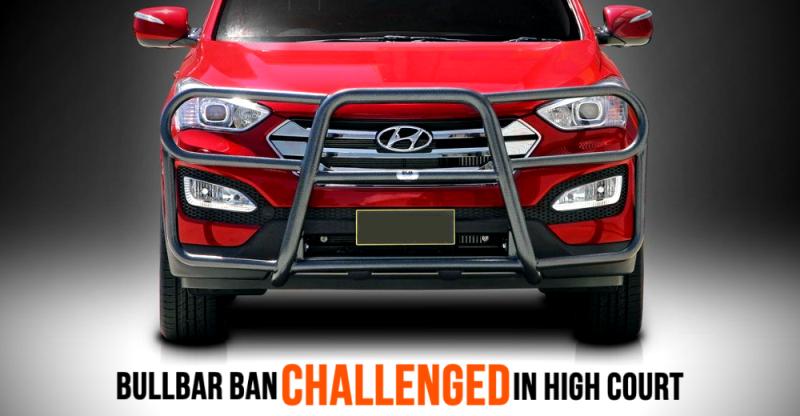Mohammed Arif, said to be a manufacturer and dealer of bullbars, has sought to implead himself in a public interest litigation (PIL) filed by Aarshi Kapoor and Sidharth Bagla, which claimed that bullbars interfere in the opening of airbags, and also have the potential to injure/kill pedestrians and other road users.

Mr. Arif has a different take on it and has claimed that the Indian government’s decision to ban bullbars has no legality. In an application to the Delhi High Court, he has claimed that there is no rule, law or bye-law dealing with accessories such as crash guards or bull bars, and due to this, the government’s decision to ban bullbars is illegal.
In his application to the court, Mr. Arif has also pointed out that fitment of bullbars don’t fall under the purview of the Section 52 of the Motor Vehicles Act, which he claims deals with only modification of a vehicle, and not with after-market fitments such as bullbars.
The Delhi High Court’s two judge bench comprising of Acting Chief Justice Gita Mittal and Justice C Hari Shankar, has asked the Ministry of Road Transport and Highways (MORTH) to respond. The court has also observed that ‘human life is more important than installation of bull bars’.
Now, it’s up to the court to interpret the law in the MVA and decide whether the Indian government ban on bullbars is legally sound. From the initial observations made by the two judge bench of the Delhi High Court though, it appears as if the court is more in favour of the ban than against it. The matter will be heard on the 6th of February, 2018.
A lot of after-market accessory makers in India are engaged in building bullbars for cars and SUVs. The bullbar is one of the most popular after-market accessory, and the ban – if upheld by the court – is likely to affect a lot of accessory makers adversely. This is why many accessory makers have been up in arms against this decision of the Union road transport ministry.
What can’t be denied though is the fact that bullbars pose a real risk to the life and limb of other road users – especially pedestrians and two wheeler riders. Bullbars also make crumple zones of cars ineffective. Moreover, the risk of airbags not working as intended during a crash is a real risk, especially on a car fitted with after-market bullbars.
What happens next?
But is the bullbar ban good in law? This is the matter that the Delhi High Court will soon decide on. Even if the court takes a decision against the bullbar ban, the Indian government can still ban bullbars by amending the Motor Vehicle Act.
[“Source-cartoq”]
